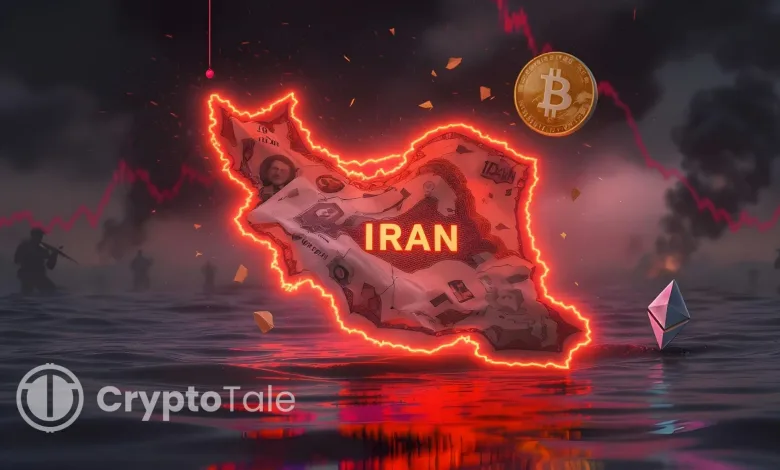Iran’s Crypto Decline: Geopolitics, Hacks, and Eroding Trust

- Iran’s crypto flows drop sharply, reflecting mounting geopolitical and economic instability.
- Nobitex hack fuels distrust, causing a surge in withdrawals and crypto market disruption.
- Tether freezes Iran-linked wallets, deepening liquidity crisis and regulatory pressures.
Iran’s cryptocurrency market has witnessed a significant contraction in 2025, with total flows dropping to $3.7 billion in the first seven months. This marks an 11% decrease compared to the same period in 2024. These losses coincide with escalating geopolitical tensions, including the breakdown of nuclear talks with Israel and a violent 12-day conflict that severely impacted the country’s infrastructure. Iranian citizens, who once relied on digital assets as a hedge against inflation, are now grappling with both political instability and declining trust in domestic platforms.
The deteriorating exchange rate of the Iranian Rial and ongoing international sanctions have only compounded these difficulties. Iran has increasingly turned to cryptocurrencies as a tool to circumvent sanctions, yet both local and global disruptions in the crypto ecosystem are now raising doubts about their continued role as a safe haven.
Nobitex Hack: A Key Trigger in Eroding Trust
In June 2025, the largest cryptocurrency exchange in Iran, Nobitex, was hacked, and this became a turning point in its crypto-related downfall. The attack was by an Israel-related hacking group called the Predatory Sparrow and led to the loss of $90 million. This violation compounded the existing weak confidence of Iranian VASP users whose teams had started to pull out their funds out of fear of additional interference.
After the hack, the exchange has lost 70% of its trading volume compared to the previous year. Not only did the attack expose millions worth of assets, but it also exposed significant flaws in the security of the platform. These weaknesses involved the connections to state surveillance and preferential treatment of VIP clients and fueled mistrust as to the part played by the platform in the government-aligned activities. The reputation of the platform deteriorated, and many Iranians searched for alternative exchanges, most of which were more unregulated and with higher risks.
Tether’s Freeze and Changing Crypto Regulations
In July 2025, Tether froze 42 Iranian-linked crypto wallets. Over half of these wallets were tied to Nobitex and other Iranian entities, amplifying the liquidity crisis within the country’s crypto market. The freeze also increased the instability of the local crypto market because many users got restricted access to their money, and there was disrupted liquidity.
In response, several Iranian influencers and platforms encouraged users to shift their holdings from TRON-based USDT to Dai on the Polygon network, citing the need for faster and more affordable networks amidst growing sanctions. However, these actions point to an expanding challenge that Iranians face with regard to accessing stablecoin liquidity. Further complicating the situation are the new laws introduced in Iran by the government regarding cryptocurrency gains and taxation policy.
Related: Iran’s Nobitex Hit by Major Cyberattack Linked to Israeli Group
Are Cryptocurrencies Still a Safe Haven for Iranians?
However, the disruptions do not mean that cryptocurrencies have ceased to be a vital instrument for Iranians who want to overcome sanctions restrictions and protect their savings against inflation. Particularly, stablecoins have helped provide a store of value as the Iranian rial loses its purchasing power. Nevertheless, a recent series of hacks on exchanges, restrictions by governments on crypto funds, and an increase in policing by governments have caused many to re-evaluate whether cryptocurrencies can be considered a trustworthy way out.
The recent emphasis placed by the Iranian government on the taxation and control of cryptocurrencies indicates that the country is ready to exercise control over the sphere. Alternative currencies such as Bitcoins and stablecoins were initially considered to be safe havens for Iranian citizens, but currently, this sphere has become controversial in Iran.




